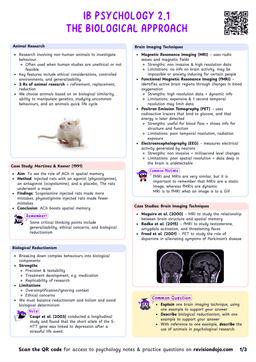Genetic Inheritance and Behaviour
Key Concepts
- Genes are segments of DNA that code for specific proteins, influencing physical and psychological traits.
- Heritability is a statistical estimate of how much variation in a trait within a population can be attributed to genetic differences.
- Twin Studies compare monozygotic (identical) and dizygotic (fraternal) twins to estimate genetic influence on traits.
- Adoption Studies examine similarities between adopted children and their biological vs. adoptive parents to separate genetic and environmental influences.
- Heritability is often misunderstood.
- It refers to populations, not individuals, and does not imply genetic determinism.
Kendler et al. (2006)
Aim: past studies suggest a 35 - 45% heritability of major depression. would this be true in a large Swedish sample? and are there significant gender differences in the heritability of major depression?
Sample: 15493 complete pair of twins
Method: phone interviews over 4 years to diagnose MD
Findings: overall concordance for MDD was 38%, as similar to previous research.
- Female monozygotic twins: 44%
- Male monozygotic twins: 31%
- Female dizygotic twins: 16%
- Male dizygotic twins: 11%
Conclusion: heritability of MDD is higher in women than men, indicates a strong genetic component due to the difference between monozygotic and dizygotic concordance rates.
Strengths
- Twin and adoption studies provide robust methods for disentangling genetic and environmental influences.
- Studies like Kendler et al. (2006) have large sample sizes and rigorous methodologies.
Limitations
- Twin studies assume equal environments, which may not always hold true.
- Adoption studies may be biased by selective placement of children.
Ethical Considerations
- Genetic research can raise concerns about privacy and potential misuse of findings (e.g., genetic discrimination).
- Participants must be fully informed about the implications of genetic studies.
Applications and Implications
- Understanding genetic influences on behaviour can inform personalized medicine and educational interventions.
- However, overemphasis on genetics can lead to deterministic thinking and neglect the role of environment.
- How do twin and adoption studies help us understand the interplay between genetics and environment?
- What are the ethical challenges associated with genetic research in psychology?
- How can findings from genetic studies be applied in real-world settings without promoting genetic determinism?


